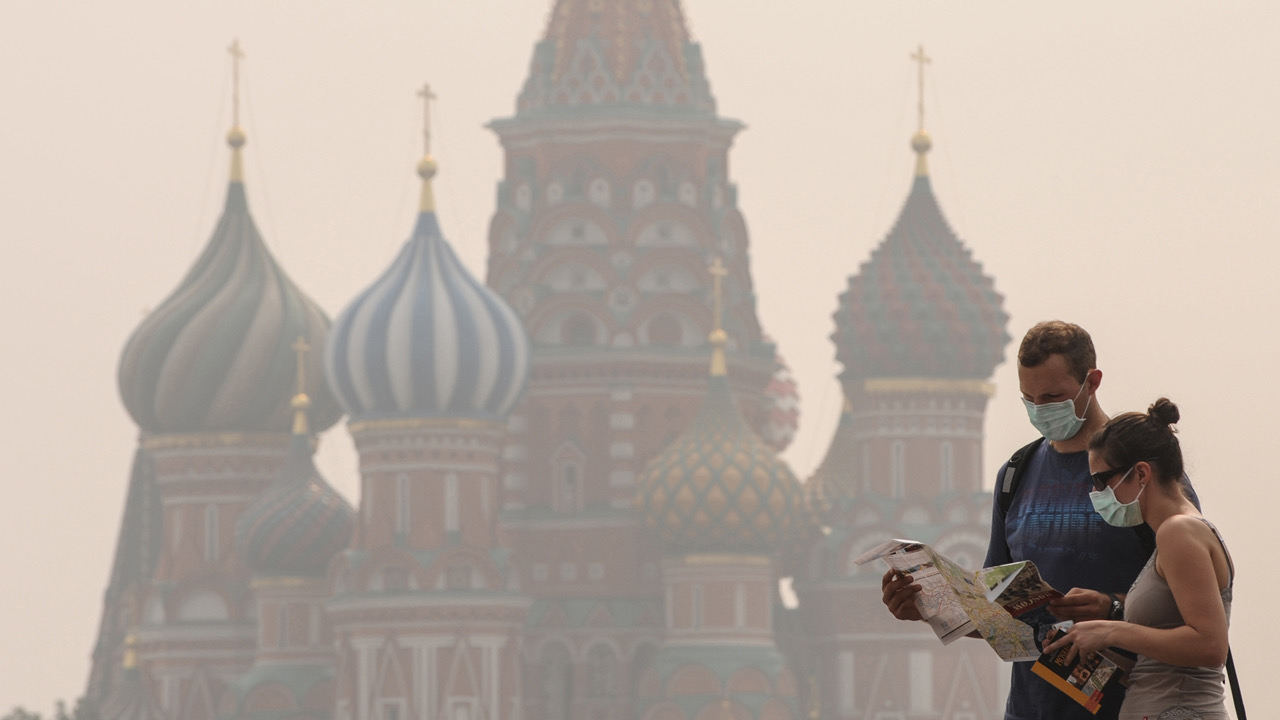Russia wins the climate crisis.
At least, that’s what Abrahm Lustgarten of the New York Times argues: as the climate continues to change, and temperatures rise in the global North, Russia will see its climate become more agreeable. If you concede the point about it being a competition at all, there’s a lot of truth to what he says. While being a country with 25 percent of its landmass above the Arctic circle is not typically anyone’s vision of a farming haven, melting permafrost in Russia equates to more arable land. Meanwhile, countries close to the equator face drought and flooding, heatwaves, and wildfires. Sub-tropical regions are quickly becoming inhospitable; Lustgarten believes that a great migration is about to take place to northern nations such as Russia, most of which is currently unoccupied.
As the largest global exporter of natural gas, Russia is not particularly incentivized to fight climate change. A global switch to renewable resources means moving away from the exports that are 60 percent of Russia’s GDP. The recent estimates of undiscovered natural gas in the Arctic (44 billion barrels), made more readily extractable with melting permafrost, is even more financial motivation for Russia to expand drilling and exports.
Few can refute the growing urgency of our changing climate unless that change presumably benefits you. In the summer of 2020, America watched in horror as the West Coast skies blazed orange while wildfires raged; in the summer of 2021, the effects of the fires were not just observed from our screens, but felt in our lungs as well. As temperatures rise, the climate is rapidly becoming unsuitable for life on Earth. The last two decades have been the hottest on record. Extreme temperatures are responsible for 5 million deaths annually. Why should Russia care? In the great game of self-interest versus cooperation, Russia has historically chosen the former. Climate change disproportionately affects those close to the equator, and, as we know, there are a plethora of reasons for Russia to completely disregard climate policy and embrace the economic benefits. There are plenty of reasons for other northern nations to follow suit.
But let me be clear: for northern nations to disregard the climate crisis is a dangerous mistake. Of course, this is true for the rest of the world. However, northern nations, in light of the assumed economic benefits, are at risk of complacency despite being equally vulnerable to the imminent consequences of climate change.
First: melted permafrost does not simply become arable land, and rather comes with a host of challenges. When land that has remained frozen for thousands of years begins to melt, huge volumes of carbon are stored in the land that are released into the atmosphere, resulting in global implications. The dangers of melting permafrost are northern-specific, too. Shifting ground puts pipelines at risk of breaking, leading to dangerous oil spills. The foundations of apartment buildings in the Russian city of Yakutsk are already crumbling.
The melting permafrost threatens trade and domestic travel as well. Ground settling caused by melting is a slow process, and even as countries try to replace damage to roads and highways, cracks will reappear within a year. Approximately 2,000 km of Canada’s highways are at risk of damage from thawing, a problem that the country has already put millions of dollars toward fixing. Warming temperatures mean lots of melting. Fixing the damage will quickly become a money sinkhole. Putin’s 2003 assertion that rising temperatures would mean Russians “could spend less on fur coats, and the grain harvest would go up” disregards the high cost of maintaining a crumbling country.
Russia refusing to give up its dependency on oil fails to acknowledge the global shift from fossil fuels. At the UN Climate Summit in Glasgow, the world’s economic giants pledged to fight climate change, with the US committing to reduce emissions to 50 percent by 2030. India declared net-zero by 2070; it aims for half of its energy sources to come from non-fossil fuels by 2030, which is significant for a country whose population makes up 18 percent of the global population. The development of renewable energy industries and infrastructure are more important than ever. The demand for renewables increased by three percent in 2020 and will only continue to do so. Nearly a third of all global electricity is generated by renewable energy, a proportion that is steadily increasing. Whether or not Russia participates, the world is advancing against climate change.
Russia’s position is not as strong as it thinks it is. A large influx of immigrants may not be the blessing that some believe it could be. While Lustgarten argues that a mass climate-inspired migration to the global north would provide a significant source of labor to support Russia’s underpopulated industries, historic trends of climate-driven migration do not suggest a smooth transition. Chaos and instability such as that caused by Guatemalans fleeing drought at the US border or the massive influx of Syrian refugees into Europe would likely negate any economic benefits. While climate-driven migration is inevitable by this point, it is in Russia’s best interest to mitigate its impact as much as possible.
Ultimately, northern nations, despite contributing the most to global emissions, will benefit the most from the climate crisis. But the benefits do not outweigh the consequences that are both global and local to these nations. The nations of the global north must push Russia to embrace a policy position that combats climate change. There are no winners when it comes to climate change—we need to stop acting like there are and demand change from all.




